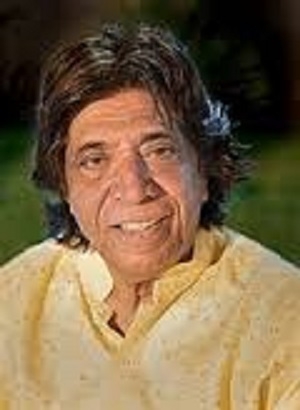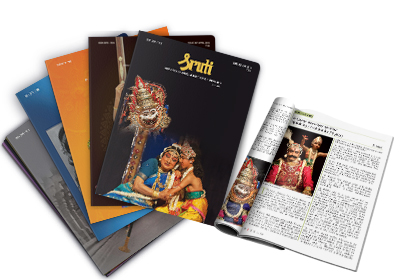
Ustad Bade Fateh Ali Khan
Siblings Amanat Ali Khan and Fateh Ali Khan were a legendary duo of classical vocalists. After the untimely death of Amanat in 1974, the younger Fateh Ali Khan has been the last living and thriving exponent of the Patiala gharana, one of the foremost stylistic lineages of Hindustani classical music.
The pair enjoyed great success in undivided India where their father Akhtar Hussain Khan, an eminent vocalist, enjoyed great patronage and privilege in the princely state of Patiala. Their grandfather Ali Baksh Jarnail, who co-founded the Patiala gharana, was also a musician in the same royal court, and so the prodigious talent of the brothers found encouragement from a very early age, especially from the elders of the Patiala gharana, Ustad Bade Ghulam Ali Khan and Ustad Ashiq Ali Khan.
The two brothers perfected their talents, neatly dividing their specialization. Where Amanat Ali had a gifted voice, full throated and mellifluous, Fateh Ali engaged in the intricacies and complexities of the music in a much lower voice.
Through the aegis of the influential connoisseur of the performing arts Pandit Jeevanlal Mattoo, the brothers made a glorious debut at Lahore in 1945.
Partition brought dramatic changes in their lives. They moved to Lahore, Pakistan, more out of historic compulsion than anything else, a move they began to rue very soon. Patronage was not easy in a totally new environment, devoid of kings, courts and sponsors and Akhtar Hussain Khan had to make a living, going door to door giving music lessons in their neighbourhood. The family subsisted on music tuitions and the paltry sum of Rs.45 they earned for a performance on Radio Pakistan.
Gradually with the help of friends and acquaintances back in India, they started receiving invitations to perform at concerts in India. Their moment of glory came in 1949; Amanat Ali was 17 years old and Fateh Ali barely 14, when they performed live to a huge gathering at the All Bengal Music Conference in Kolkata. Soon the quality and richness of their music found appreciation in Pakistan and they began to be showered with accolades. In 1969, the President of Pakistan conferred on them the Pride of Performance Medal.
But the troubled relations between the two countries that frequently escalated into tensions were stumbling blocks for their singing career which continued in fits and starts. In 1974, came the death blow. Amanat Ali passed away suddenly leaving a void so painful that it almost finished Fateh Ali’s musical career. Deeply devastated, he slipped into depression until the persistent persuasion of his family forced him to join Radio Pakistan in a supervisory capacity.
Gradually, he took to the stage again with the help of his youngest brother Hamid Ali Khan and his nephews, the sons of Amanat Ali Khan. Left without his other half, Fateh Ali had to improvise and realign his style of singing; he soon regained his lost glory. Where earlier he sang compositions in the dhrupad genre, he modified his repertoire to khayal, ghazals and thumris.
Since then, Fateh Ali has performed widely in Europe, the Middle East, North America and South Asia with his nephews and released several recordings.
Living at Lahore, he still performs occasionally at concerts overseas continuing to inspire his students and nephews in the hope of keeping alive the khayal genre of the Patiala gharana. Fateh Ali Khan is truly the last of the thoroughbred vocalists out of the Patiala gharana.


